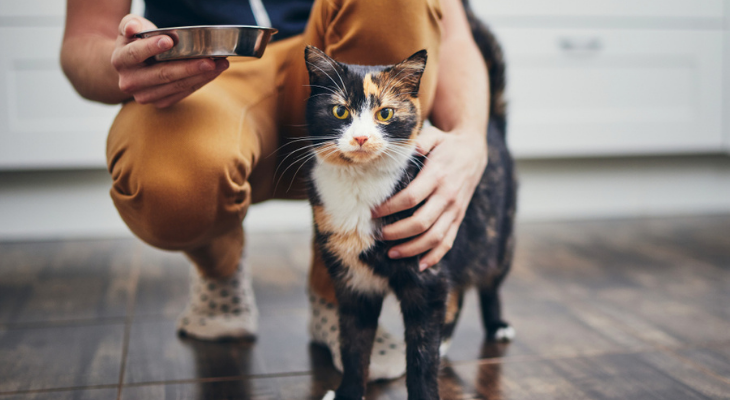
Are You Making These Common Mistakes with Your Cat?
Cats offer so much to their companions yet want little in return - a cozy place to sleep (preferably on you), tasty food, and a few toys. As your cat's human guardian, it's only natural to want to make your favorite feline's life as comfortable and happy as possible. Although you may have the best intentions, some of your decisions could cause issues that might affect your pet's health and well-being. These six mistakes are particularly common among cat owners.
1. Overfilling Your Cat's Food Bowl
There's no such thing as too much food as far as your cat is concerned. In fact, every time you visit the kitchen, your pet may run to its food bowl, silently pleading with you to add a little more food.
Although topping off the bowl may seem harmless, it could increase your pet's risk of becoming overweight or obese. Diabetes, arthritis, gastrointestinal problems, liver disease, and other conditions are more likely to occur if your pet weighs too much.
Fortunately, you can decrease the risk of these health problems simply by following the feeding recommendations printed on the food label. If you're concerned that your cat isn't getting enough to eat, talk to the veterinarian before increasing food amounts.
2. Forgetting About Dental Care
Brushing your teeth every day removes plaque, a transparent sticky film that coats the teeth, increasing your risk of tooth decay and gum disease. Plaque also builds up on your pet's teeth and can cause the same conditions. Although eating dry food is supposed to help remove plaque, at least in theory, that's not always the case. If the morsels are small or your pet swallows food whole, eating probably won't do much to get rid of plaque.
Brushing is the best way to control plaque on your pet's teeth. Cats tend to accept brushing more readily if it's started when they're young, but that doesn't mean it's ever too late to start an oral hygiene routine. Older cats can often handle brushing if you start the process gradually and use a pet toothbrush or a finger brush.
Dental cleanings at the veterinary office are also a must. Cleanings remove plaque and tartar above and below the gum line while your cat is anesthetized. Tartar is a hard deposit that can damage your pet's gums and tooth roots. The American Veterinary Dental College recommends yearly dental cleanings for pets.
3. Giving Your Cat Milk
Just like people, many cats suffer from lactose intolerance when they drink milk. Although cats can digest lactose when they're kittens, they lose that ability as they get older. If your cat is lactose intolerant, drinking milk can result in an upset stomach, vomiting, abdominal pain, or diarrhea.
4. Not Providing Identification for Your Cat
Whether your cat lives solely indoors or goes outside occasionally, identification is a must. Unfortunately, it only takes a few seconds for your cat to slip through an open door and vanish. You're much more likely to be reunited with a lost pet if it's microchipped or wearing a collar with an ID tag.
5. Avoiding Spaying or Neutering for Your Cat
Spaying (for females) and neutering (for males) prevent your cat from reproducing. In addition to reducing the number of unwanted cats and kittens, spaying and neutering also offer health benefits for your feline. The surgery helps female cats avoid breast cancer and uterine infections and prevents or reduces the risk of prostate gland enlargement and testicular cancer in males, according to the American Veterinary Medical Association.
6. Skipping Veterinary Visits
Yearly appointments with the veterinarian help you protect your cat's health. During checkups, your pet's doctor looks for subtle signs of illnesses and diseases. Early detection may make it easier to treat conditions and reduce your pet's risk of complications or serious health issues.
Routine blood tests conducted during annual visits provide important information on your pet's health. The tests can detect diabetes, thyroid disease, heart or bone damage, or liver, kidney, or gallbladder disease long before your pet shows any symptoms.
During the appointment, your pet may also receive vaccinations that will prevent potentially deadly diseases, such as rabies and distemper. Visits also offer the perfect opportunity to monitor your pet's weight and discuss any health or behavioral concerns you may have.
Is it time for your cat's next visit to the veterinarian? Contact our office to schedule your pet's appointment.
Sources:
American Veterinary Dental College: Pet Periodontal Disease
American Veterinary Medical College: Spaying and Neutering



